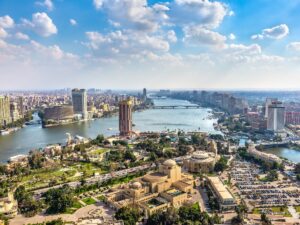If you travel regularly, the chances are that you’ve used TripAdvisor, one of the world’s largest travel websites.
This week our members discuss how they use TripAdvisor, be it for researching hotels, restaurants or otherwise. Many people find the website a particularly valuable resource for finding or checking out hotels as the reviews are from real travellers and often mention things that the hotel’s website leaves out. Reviewers often give useful advice too, such as things to do in the area, how to reach public transport or which rooms to avoid.
I use it to read up on hotels we intend on staying in as you pick up things you may not have found out until you get there. For instance when we stayed at Cabo I didn’t realise you couldn’t swim at a lot of the beaches along the coastline including the beach at the Holiday Inn Los Cabos where we were staying due to strong undertows.
The amateur photos posted on TripAdvisor are also a good way to see what the accommodation “really” looks like.
By checking the reviews, ranking and photos, many of our members believe that one can get a very good overall picture of a property.
However the reviews posted on the site are not always 100% reliable, and many members have their own personal “filters” when it comes to reading TripAdvisor reviews. Many ignore “one-hit wonders”, or posters with only one review – especially if the review is highly positive or highly negative. Some also trust reviews from people of certain nationalities more than others, as different nationalities often have different expectations and therefore criticise or praise based on criteria most Australians would not care about.
When I’m reading reviews as a source of information about places to stay, I try to make sure that if a place has a glowing review then that is for a reason that would also suit my preferences, and likewise if a place has terrible reviews. I always ignore “this place is fabulous because we paid for a cupboard-sized room and they gave us a fantastic suite” or “this place is terrible because it doesn’t have [insert here something that you wouldn’t care whether it has or not]”.
Another strategy used to sift through all of the reviews is to look at the overall rating, however sometimes this will be skewed by negative reviews from people with unrealistically high expectations to begin with. That’s why it’s important to actually read the negative reviews before you allow them to influence your decision.
I use it extensively when choosing hotels, look at the proportion of 5* ratings to overall amount of reviews and then I read all the average, poor and terrible reviews.
Sometimes people post a terrible or poor review because the concierge wasn’t smiling or because they were made to wait six minutes to be checked in lol that’s why it’s important to read the review IMO as opposed to just looking at the number of stars awarded.
TripAdvisor does claim to verify the authenticity of its reviews – with a debatable level of success. One member actually had a positive review knocked back because it was so positive that TripAdvisor thought it was an advertisement.
I have posted as well, once I wrote a glowing report with really nice photos and TA emailed me that they were not going to publish my review because they thought it was a *fake* and trying to promote the hotel.
Overall, the general consensus among the AFF community is that TripAdvisor is a valuable research tool if you know what to look for in a review and are prepared to take everything you read with a pinch of salt.
Do you find TripAdvisor a useful resource? Why not join in the DISCUSSION ON ALL THINGS TRIPADVISOR.












































































